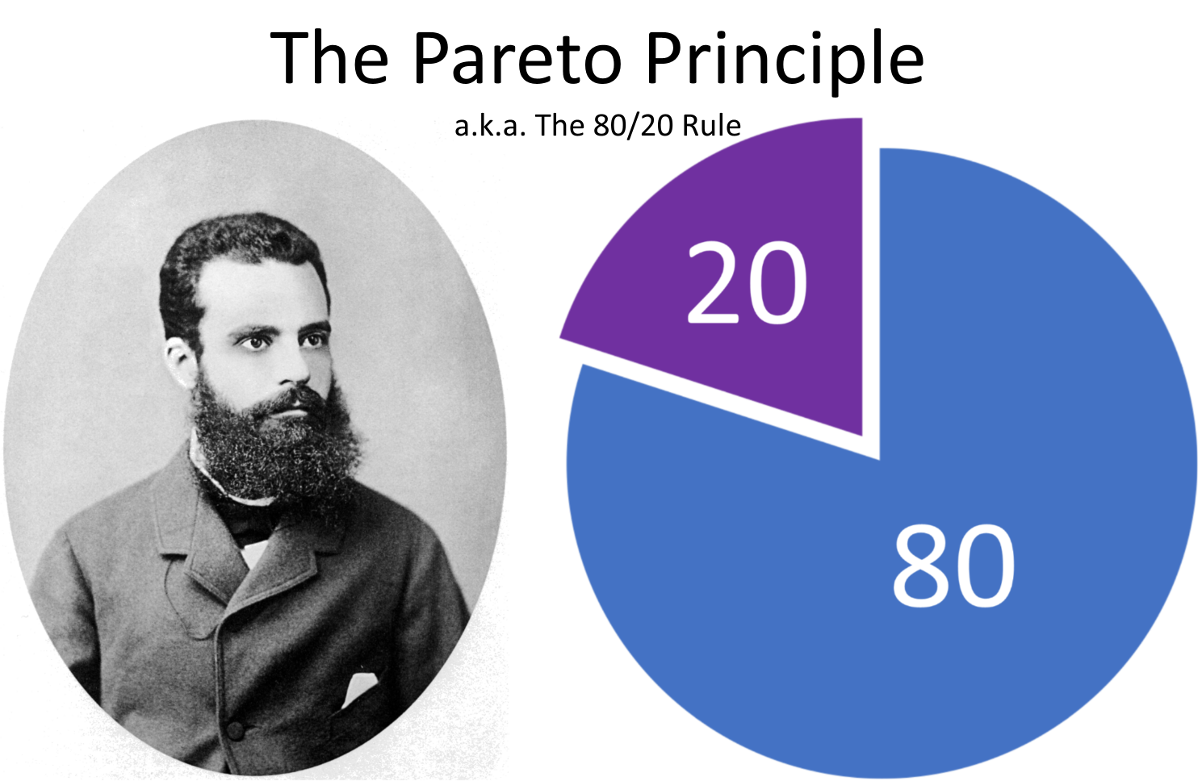
But the payoff and rewards for completing these tasks efficiently can be tremendous. The most valuable tasks you can do each day are often the hardest and most complex. This task is invariably the one that you should do first. Often, one item on a list of ten things that you have to do can be worth more than all the other nine items put together. But one or two of those tasks will contribute five or ten times the value as any of the others. Each of these tasks may take the same amount of time to accomplish. This means that if you have a list of ten items to do, two of those items will turn out to be worth as much or more than the other eight items put together. 20% of your tasks will account for 80% of the value of what you do, and so on. 20% of your products or services will account for 80% of your profits.

20% of your customers will account for 80% of your sales. He later discovered that virtually all economic activity was subject to this Pareto Principle as well.įor example, this rule says that 20% of your activities will account for 80% of your results. Pareto noticed that people in his society seemed to divide naturally into what he called the “vital few,” the top 20% in terms of money and influence, and the “trivial many,” the bottom 80%.

It is also called the Pareto Principle after its founder, the Italian economist Vilfredo Pareto, who first wrote about it in 1895. He 80/20 Rule is one of the most helpful of all concepts of time and life management. Mathematically, the 80/20 rule is roughly followed by a power law distribution (also known as a Pareto distribution) for a particular set of parameters, and many natural phenomena have been shown empirically to exhibit such a distribution. It is a common rule of thumb in business e.g., “80% of your sales come from 20% of your clients.” Essentially, Pareto showed that approximately 80% of the land in Italy was owned by 20% of the population Pareto developed the principle by observing that about 20% of the peapods in his garden contained 80% of the peas. Juran suggested the principle and named it after Italian economist Vilfredo Pareto, who noted the 80/20 connection while at the University of Lausanne in 1896, as published in his first paper, “ Cours d’économie politique“. The Pareto principle (also known as the 80/20 rule, the law of the vital few, or the principle of factor sparsity) states that, for many events, roughly 80% of the effects come from 20% of the causes.


 0 kommentar(er)
0 kommentar(er)
